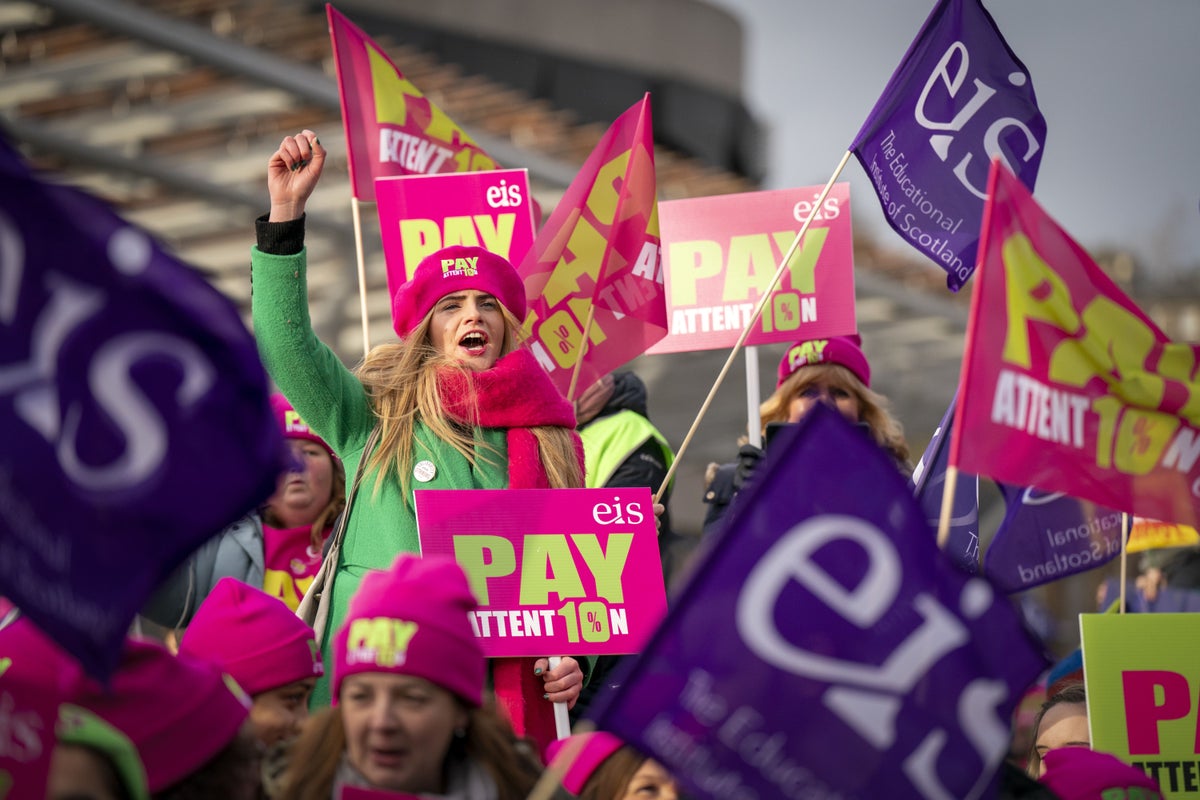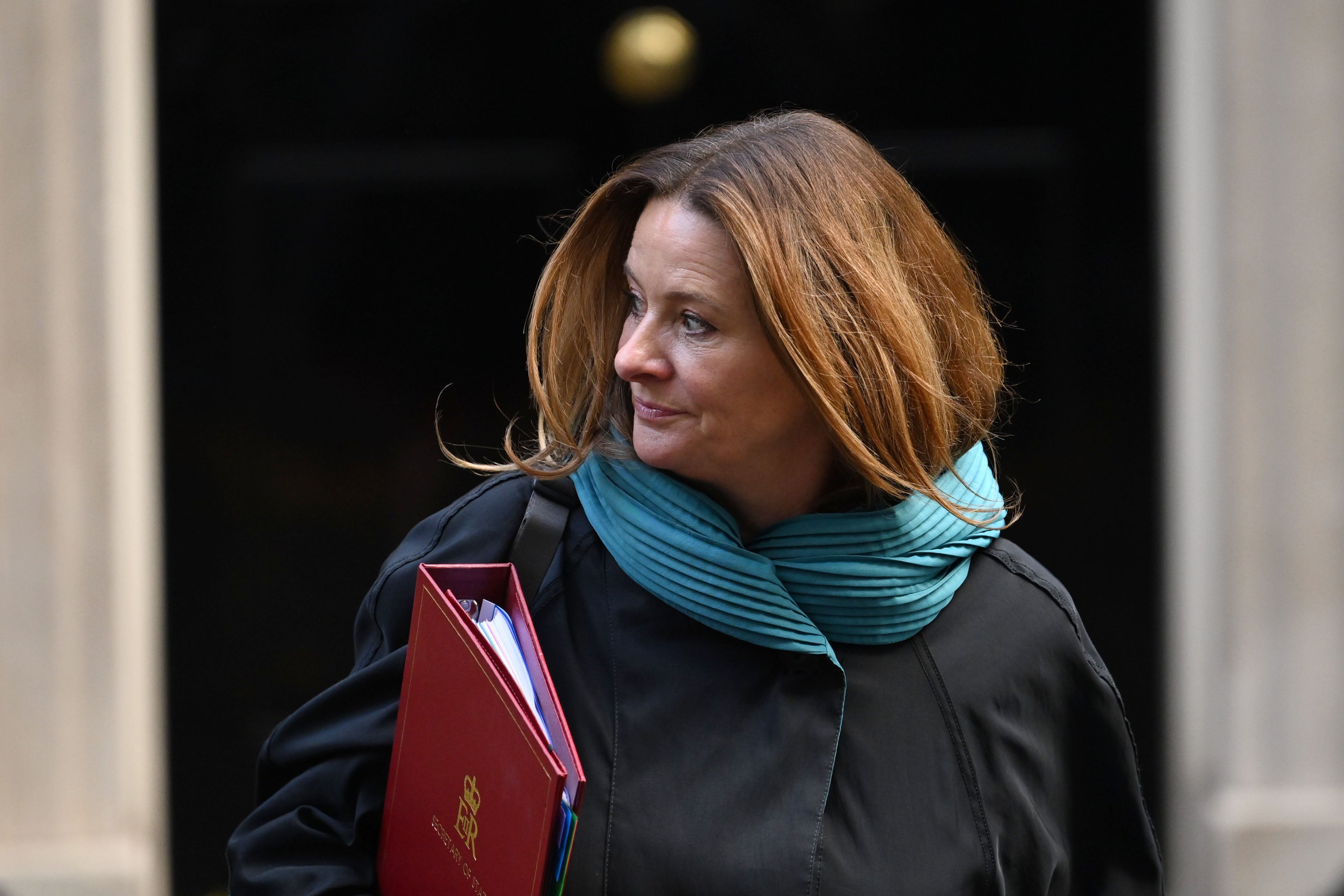
Education secretary Gillian Keegan says children “don’t deserve” the disruption set to hit schools next month after teachers voted in favour of strike action in a bitter dispute over pay.
The National Education Union (NEU) has declared seven days of walkouts in February and March after 9 out of 10 teacher members voted for strike action and the union passed the 50 per cent ballot turnout required by law.
Ms Keegan branded the move “deeply disappointing” and said pupils were still struggling to recover from the impact of the Covid pandemic on their education – admitting schools faced an “incredibly difficult” situation.
“I’m disappointed in the one union who have decided to go on strike – our children don’t deserve it,” she told Sky News, adding that the government wanted to keep “as many schools open as possible for as many children as possible”.
Asked on ITV’s Good Morning Britain if she can assure parents that schools will open and children will be able to go to classes, Ms Keegan said: “I can’t guarantee that, but we’ll be working with headteachers to make sure as many schools are open for as many children as possible.”
Schools have been told they can use volunteers to stay open, as government guidance calls on headteachers to “take all reasonable steps to keep the school open for as many pupils as possible”.
Some schools are planning to bring back online lessons and Covid-style merged classes for vulnerable children. Headteachers are entitled to ask staff whether they intend to strike as they form contingency plans, the Department for Education said.
“We have asked [headteachers] to prioritise vulnerable children, exam cohorts and children of critical workers,” Ms Keegan told LBC. “We do think it’s important that children stay in school and we’ll be working with headteachers to make that happen.”
Ms Keegan is set to meet again with teaching unions on Wednesday, but there is not much optimism a deal can be to avoid strikes from 1 February.
The minister claimed she had been willing to discuss pay last week, but admitted she had only referred to pay review body process. “We didn’t negotiate the pay, that’s not what we’re there to do,” she said.
The NEU is demanding an above-inflation pay rise, after the current year’s pay review process awarded a pay rise of about 5 per cent, with starting salaries increased by 8.9 per cent.
Asked whether teachers are paid enough, Ms Keegan said teaching is still an “attractive profession”, telling LBC: “We do still attract a lot of teachers. Where we struggle a little bit more is with maths and science and computer science.”
The NEU’s Kevin Courtney described the industrial action in schools as “the biggest ballot result of any union in recent times”.
The first of seven days of strikes will be on 1 February with more than 23,000 schools in England and Wales expected to be affected – but the NEU said any individual school will only be affected by four of the days.

School leaders in Wales are also set to take industrial action over pay, but heads in England will not stage strikes after the National Association of Head Teachers (NAHT) ballot turnout failed to meet the legal threshold.
Schools across Scotland were shut last week as members of the Educational Institute of Scotland (EIS) and other unions took strike action. Schoolchildren north of the border will miss more lessons this week after the EIS began a further 16 days of rolling strike action on Monday.
Meanwhile in parliament, MPs voted 309 to 249 in favour of moving anti-strike legislation –that could see key workers sacked – forward to the second reading stage.
The bill would require minimum levels of service from ambulance staff, firefighters and railway workers during industrial action, although unions and opposition MPs have condemned the proposals as unworkable.
Although the bill will also cover education, Ms Keegan said she hoped that the controversial anti-strike restrictions would not be needed in the teaching profession since the government is hoping for a voluntary agreement on minimum cover.
“All we’re trying to do though is to make sure that we have the minimum service safety levels in place. It’s going to initially focus on health and rail, and education is in there, but we’re hoping not to use it for education because, at the moment, we’re not at that stage,” she told LBC.
However, she added: “We need to be able to keep schools open for vulnerable children, in particular. That is something we very much learned during the pandemic. So yes, we [the education sector] are part of the bill.”







